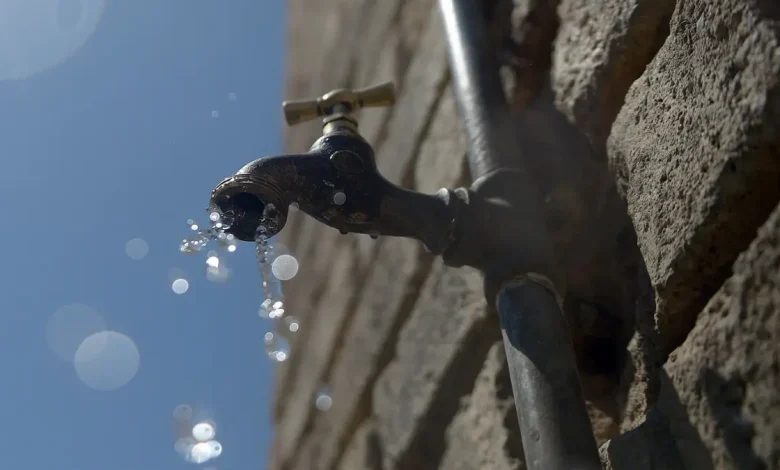Gauteng High Court Restores Water to Joburg NGOs

Thousands of Johannesburg’s most vulnerable people now have access to water again after a vital High Court ruling. The Gauteng High Court ordered the immediate reconnection of water to 23 non-governmental organisations (NGOs) at the Children’s Memorial Institute in Braamfontein. This decision ensures these organisations can continue their crucial work caring for children, families, and people in crisis. The ruling serves as a firm reminder that basic rights must remain protected, even amidst municipal disputes.

ALSO READ: Government’s Plan to Address ARV-Contaminated Water in South Africa
City Cut Off Water Without Proper Notice
Johannesburg Water cut off supply due to unresolved account and billing disputes; however, the city did so without providing advance warning or giving the NGOs an opportunity to respond. As one representative from an affected NGO explained, “We were given no notice. Suddenly there was simply no water for drinking, hygiene, or food preparation,” (as reported by Section27, the legal advocacy group). As a result, staff and residents at the Children’s Memorial Institute endured days without safe water, which, in turn, forced care centres and therapy units to suspend basic daily activities.
Section27’s Head of Communications, Julia Chaskalson, stressed the impact:
“Children, families, and staff were left without clean water to drink or to maintain basic hygiene, which is a violation of their basic constitutional rights.”
The NGOs, many caring for disabled children, survivors of abuse, and other at-risk groups, faced immediate and severe disruptions. They called on civil society and the courts for urgent help.
Immediate Impacts on Vulnerable Communities
The lack of water put the health and dignity of Johannesburg’s most vulnerable at risk. One staff member, who asked not to be named, explained:
“We care for very vulnerable children here. Without water, hygiene became impossible and the risk of illness increased every day.”
Meals became difficult to prepare. Therapy and support services ground to a halt. Staff struggled to maintain sanitary conditions, while distress spread quickly throughout the community. Many NGOs feared for the safety of those in their care.
Court Demands Procedural Fairness
Presiding over the case, Judge Mudunwazi Makamu sharply criticized the city’s approach. He ordered the City of Johannesburg and Johannesburg Water to reconnect the water within two days and emphasized the need for due process:
Judge Makamu ordered the City to notify the applicants, as lawful occupiers, before disconnecting their water in the future and to give them the opportunity to make representations (quoted by Section27). Furthermore, the judge stated that the Gauteng Department of Infrastructure Development must coordinate account allocation among tenants in order to prevent future crises. As he explained, “This is an interim arrangement pending final determination and until such time as individual utility accounts are separated.”
Advocacy Groups Step Up
Section27, which represented the affected NGOs, welcomed the ruling.
“The devastation and hardship caused by the disconnection of water was unnecessary and unconstitutional,” said Section27 attorney Tlamelo Maloi.
“We are relieved that the court has recognised the urgent need to protect the rights and dignity of those most at risk.”
Community organisations played a key role, ensuring the court understood the human cost of service disruptions. The court’s swift intervention underscores the importance of civil society advocacy in protecting basic rights.
CHECK OUT: Rand Water Maintenance Starts Tuesday: These Areas Will Be Affected
Setting a Strong Precedent
This ruling sets a new standard for how cities must treat NGOs and other lawful occupiers in public buildings. According to Section27:
“Lawful occupiers now have a clear right to advance notice and a fair process in service delivery disputes. The court reinforced that authorities cannot cut off basic services without providing robust procedural safeguards.
Moving Forward Together
With water restored, relief has spread across the Children’s Memorial Institute. “We can finally focus on the children’s wellbeing again. This crisis showed just how vital water is to our work,” said a grateful staff member.
The case highlights the need for improved communication and clearer procedures between municipalities, landlords, and service providers. As Section27’s Julia Chaskalson put it:
“Water is not a luxury for these organisations it is a lifeline.”
By intervening quickly, the High Court has reaffirmed the values of justice, action, and respect for basic needs. Thanks to this order, Johannesburg’s NGOs once more stand on firmer ground, continuing to deliver support to those who need it most.




